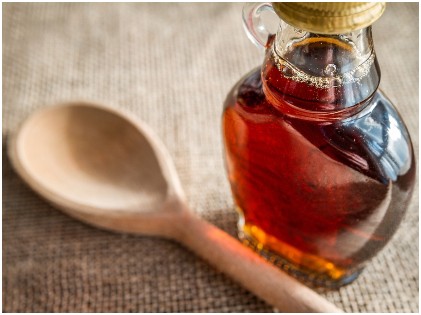 We have all heard of maple syrup. A common natural sweetener, this is a far better and healthier alternative to usual sugars. But, extensive research conducted over the years has questioned whether or not maple syrup is as nutritious as we thought it to be. Ideally, you can create maple syrup by using the sap or fluid inside sugar maple trees. Several countries and continents have popularized the use of it for centuries.
We have all heard of maple syrup. A common natural sweetener, this is a far better and healthier alternative to usual sugars. But, extensive research conducted over the years has questioned whether or not maple syrup is as nutritious as we thought it to be. Ideally, you can create maple syrup by using the sap or fluid inside sugar maple trees. Several countries and continents have popularized the use of it for centuries.
Almost 80% of the total supply of maple syrup is now produced in eastern Canada’s Quebec province. Two steps are usually involved while producing maple syrup- first. The first step is to drill a hole inside the maple tree to pour the sap into containers. The second step is to boil the sap to ensure most of the water evaporates, leaving the thick sugary syrup, which is later filtered to remove impurities if any. Here’s taking a look at the good and bad of maple syrup.
Rich With Vitamins And Minerals, But Sugar Content Is High
The only good part about maple syrup is that, unlike refined sugars, there are minerals and antioxidants. 1/3rd of a cup (80 ml) of maple syrup is replete with calcium, iron, zinc, potassium, and manganese in varying quantities. Alongside, it packs a decent dose of sugar, too- like 2/3rd sucrose.
If you compare excess sugar, it could lead to the biggest health issues like obesity, heart diseases, and type 2 diabetes. To have generous doses of minerals and vitamins, anybody would recommend whole foods, veggies, and fruits. But having maple syrup means you’re increasing your sugar content that can affect blood sugar levels too. Though maple syrup is better with a glycemic index of 54, table sugar has around 65!
Rich In Other Compounds

Not just vitamins and minerals, but there are plenty of other compounds that the syrup contains. Strangely, the normal maple tree doesn’t contain such potentially benefitting substances, but once you boil the sap to form a syrup, only then can you derive them.
For example, quebecol gets its name after the region of Quebec, which is one of the largest maple syrup-producing provinces in the world. Also, the syrup contains active compounds that reduce cancer cells. In addition to that, it breaks down carbohydrates in the digestive tract.
At Least 24 Antioxidants Are Present
Free radicals often result in what we say ‘oxidative damage’ that results in quick aging and many diseases. It is only then that antioxidants are necessary to neutralize the free radicals and lessen such damages. And it thus lowers the chances of developing numerous ailments. A recent study found that maple syrup contains about 24 different antioxidants.
The darker varieties like Grade B contain more of these antioxidants than the lighter shaded ones. Yet, the antioxidant content cannot match the high level of sugar it contains. For those who would like to lose weight or improve metabolic health, maple syrup might be good.
How To Detect Maple Syrup Quality?

Maple syrup is available in varied grades that you can characterize based on color. However, classification is not the same for all countries. While in the US, Grade A or B sells big, wherein Grade A again can be sub-divided into three parts- light, medium, and dark amber. On the other hand, Grade B is the darkest colored syrup extracted from the sap during the harvest season.
Usually, the maple flavor is stringer in darker varieties, and you can use it during baking. For pancakes and simple cookies, though, try directly pouring the lighter ones. The purchasing guide is of particular importance for maple syrup. So read the food labels properly to make yourself aware of whether it’s high-fructose corn syrup or something with refined sugars.
Should You Have It?
There’s no doubt that maple syrup contains antioxidants and nutrients too, but the sugar content is much too. While there’s no doubt that replacing refined sugars in your daily diet with high-quality, branded maple sugar is better. But don’t always add it to the diet. We shouldn’t call this a healthy option, but certainly, it’s akin to coconut sugar, which is somewhat of a less bad version. You should consult with a dietician before including it in your diet plan. That way, you can be sure that the maple syrup in your diet is in the right proportions.




